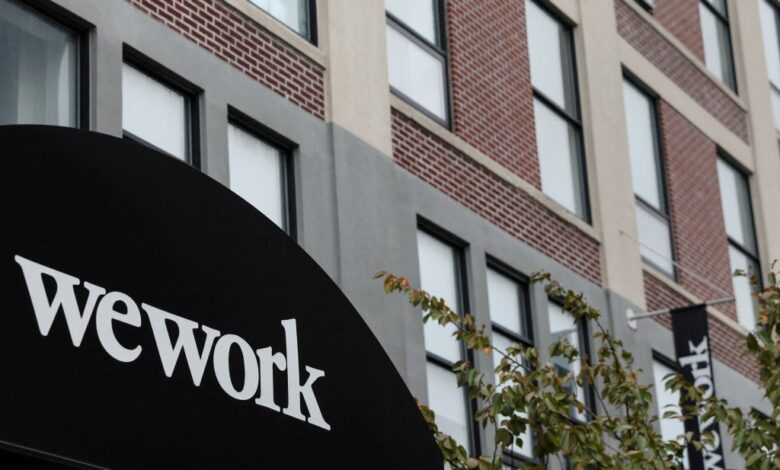WeWork targets Chapter 11 exit by May 31, secures $8 billion in rent reduction

WeWork said on Tuesday it aimed to emerge from Chapter 11 bankruptcy in the U.S. and Canada by May 31 and had negotiated more than $8 billion, or over 40%, reduction in rent commitments from landlords.
The shared office space provider, once privately valued at $47 billion, filed for bankruptcy in November as it racked up losses on its long-term leases after demand for office space plunged during the pandemic and from a shift to hybrid working.
The SoftBank-backed company’s post-bankruptcy business plan is premised on a significant reduction in future rent costs from its landlords.
The company said on Tuesday it had agreed to amend about 150 leases with better economic terms, such as reduced rent payments, and it is in the process of exiting another 150 leases. The company will maintain 150 leases without change, and it is still negotiating with landlords for about 50 additional locations.
WeWork’s lease negotiations will allow the company to exit from bankruptcy as a leaner business, ready to provide workspaces that will benefit both employers and landlords during a period of uncertainty in commercial real estate markets, according to WeWork’s global head of real estate, Peter Greenspan.
“The need for these types of services and spaces has only increased, so it is a good time to go through this process with the landlords and rethink how we monetize this all this office space that used to be filled with traditional, long-term leases,” Greenspan said in an interview.

WeWork did not exit any geographic markets when it scaled back its leases, instead pulling back in some cities, like New York, where the company grew too fast or experimented with other products outside of its core coworking space business, Greenspan said.
WeWork in November reached an agreement with more than 90% of its bondholders to convert $3 billion of debt into equity. SoftBank, which currently owns about 70% of the company, would retain an equity stake under the proposed restructuring.
Meanwhile, WeWork co-founder Adam Neumann has submitted a bid of more than $500 million to buy back the company, with the financing process currently unclear. WeWork declined to comment on Neumann’s specific bid, saying it receives and reviews “expressions of interest from third parties on a regular basis.”
Under Neumann, WeWork rapidly expanded to become the most valuable U.S. startup. But his pursuit for growth at the expense of profit and revelations about his eccentric behavior led to his ouster and derailed an initial public offering in 2019.




